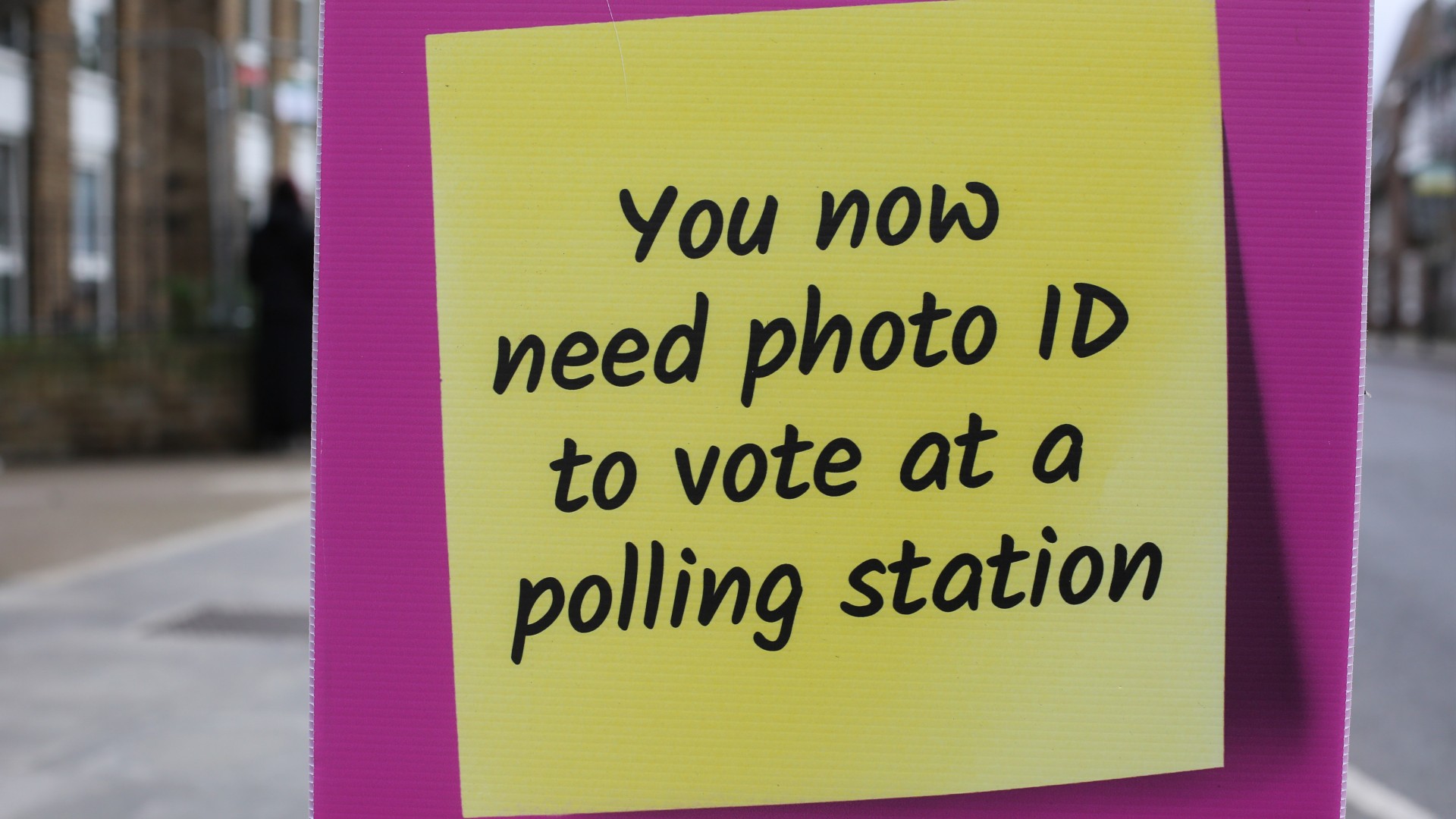Voter ID rules explained
What you need to bring on Thursday and why it is controversial

A free daily email with the biggest news stories of the day – and the best features from TheWeek.com
You are now subscribed
Your newsletter sign-up was successful
A majority of the British public backs the use of voter ID in elections, despite concerns that it disproportionately affects marginalised communities and young people.
With the general election just days away, the latest YouGov tracker data found two-thirds of people (68%) support having a photographic identification (ID) requirement to vote, compared to just 25% who are opposed. Most across all ages and social groups support the rule, with the exception of Green voters who oppose it by 56% to 40%.
YouGov found that 94% of people were now aware that photographic ID is required in order to vote, up from 76% when the new rules were brought in ahead of the May 2023 local elections.
The Week
Escape your echo chamber. Get the facts behind the news, plus analysis from multiple perspectives.

Sign up for The Week's Free Newsletters
From our morning news briefing to a weekly Good News Newsletter, get the best of The Week delivered directly to your inbox.
From our morning news briefing to a weekly Good News Newsletter, get the best of The Week delivered directly to your inbox.
What do you need to show?
The introduction of voter ID in 2023 was described as "the biggest change to in-person voting in 150 years" by Councillor Kevin Bentley, spokesperson for the Local Government Association, which represents local authorities.
Unlike previous elections where you needed only to provide your name and address, for the first time ever at a general election on 4 July you will need to show photographic ID to vote.
Passports and driving licences are acceptable everywhere but requirements for other forms of ID vary. "An over-60 travel pass is valid in London, Wales and Northern Ireland (where photo ID has been required since 2003)", said The Economist, even though a young person's Railcard or Oyster card is not. "Elsewhere, only an over-66 travel pass granted at the state retirement age is accepted."
A full list of accepted forms of voter ID can be found on the Electoral Commission website.
A free daily email with the biggest news stories of the day – and the best features from TheWeek.com
Those who do not have an accepted form of ID could have applied for a free "voter authority certificate" but the deadline to receive one in time to vote in the 4 July general election has passed.
Is ID really necessary?
Brought in by the Conservatives as part of the Elections Act 2022, Rishi Sunak said ID checks would ensure elections are "high-integrity processes", with proponents pointing to "high-profile, though isolated, examples of fraud", The Economist reported. The "most egregious" was "a 2014 mayoral election in the London borough of Tower Hamlets, [which] ended up being voided on the grounds of corrupt and illegal practices".
But overall there is "no evidence of large-scale electoral fraud in the UK", said the BBC. According to the Electoral Commission, since 2019 there have been 11 convictions and four police cautions issued in connection with cases of electoral fraud.95
The statistics "highlighted a point made repeatedly by opponents of voter ID", said The Guardian, "that it tackles a problem that is almost unknown in Britain, while creating a barrier to voting for the estimated 2 million adults who lack the necessary documentation."
Rather than improving the voting process, opponents argue the new rules actually "suppress turnout among certain slices of the electorate", said The Economist. It pointed out that "of the various photo-adorned bus passes, student cards and railcards carried by younger voters, who are less likely to vote Conservative, none are acceptable. People with severe disabilities, the unemployed and those who have never voted are also less likely to have any form of photo ID."
"Making it harder for people to vote" is also an "expensive business", said the Electoral Reform Society, citing the government's own impact assessment of the Elections Act, suggesting the new scheme demanding certain forms of ID at polling stations could cost up to £180 million a decade.
Will it impact turnout?
Analysis of the impact of compulsory voter ID on the May 2023 local election by the Electoral Commission warned the disenfranchising effect was very likely to be proportionately greater in a general election.
Among people who did not vote in 2023, 4% said this was because of voter ID. If this figure went up to 5%, said The Guardian, it could mean "about 800,000 people staying away from the polls at a general election".
The study found a disproportionate impact on those living in more deprived areas, those with disabilities and people from minority ethnic backgrounds.
The Economist, however, points to research from Canada, Switzerland and certain American states that has shown little correlation between voter ID laws and depressed turnout.